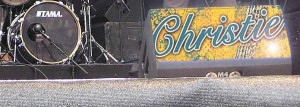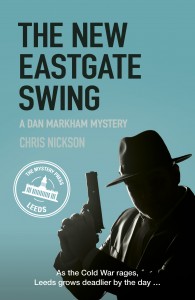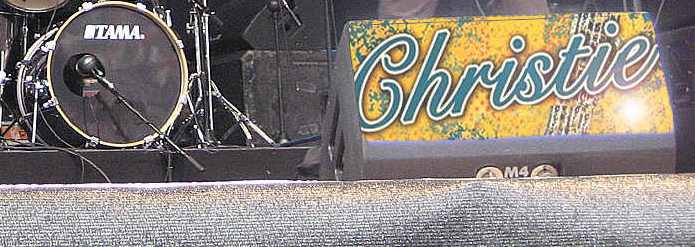You will know Chris Nickson as a writer of gripping historical crime fiction but he is also a noted music journalist and this month he reveals a little piece of Leeds pop music history.

If you were a teenager in Leeds at the dawn of the 1970s, you knew you were living in a cultural wasteland. We had plenty of sport, thanks to Leeds United, there was some good theatre, courtesy of Leeds Playhouse (then near the university) and bands arrived on tour – the Who recorded their very famous Live at Leeds here, after all.
But nobody who was making waves came from here.
There were a few exceptions, of course: writer Keith Waterhouse, of Billy Liar fame, who by then seemed happy to be a Soho denizen in London. And Ronnie Hilton (actually born in Hull) who’d had middle of the road hit parade success in the 1950s. Nobody young, let’s say. Maybe Arthur Brown (Fire), who went to Roundhay School for a couple of years. But he grew up in Whitby; he wasn’t from Leeds. Then, in June 1970, a song called Yellow River, performed by a group named Christie shot to the top of the charts. The rumour began to go around: Jeff Christie, the bass player and singer, came from Leeds. And it was true.
These days it might seem silly to have that sort of pride. It was just a pop song, after all. But he was Leeds, he was ours (the word was that he’d grown up on Scott Hall Road), and even if your tastes ran to the more progressive end of the spectrum, there was the local factor. But there was also a story behind the song and the singer, of course. Isn’t there always?
Like so many of his generation, Jeff Christie began as a very youthful skiffle player, moving to rock’n’roll as fashions changed. His new band, the Tremmers, renamed themselves the Outer Limits and did manage to land a record deal, releasing three singles, including one that gained airplay on the pirate radio stations but never quite hit the charts, and another on Instant, a brand-new label set up by former Rolling Stones’ manager Andrew Loog Oldham. That record vanished without trace.
They did open for Jimi Hendrix on a package tour and managed to soldier on until 1969, their break-up documented in Death of a Pop Group, which aired on Yorkshire Television.
Christie had written the material, and knew he had a knack for a commercial song. That was proved when he came up with Yellow River. A very successful pop band, the Tremeloes, recorded it but never released the track. One of their members had a brother who was trying to succeed in the music business with his own band and suggested the song. With Christie on bass and vocals, Mike Blakely on drums, and Vic Elmes on guitar, Yellow River arrived in the spring of 1970. Except it wasn’t exactly as it seemed. None of the trio played on the record. It was actually the backing track the Tremeloes had recorded with Christie’s vocal on top – he’d been summoned down from Leeds for the sessions – and the result was a song with strong echoes of Creedence Clearwater Revival. It was indeed commercial; it became a number one hit in 26 different countries.
The band would go on to enjoy two more hit singles in the UK and release three albums before ending in 1976, although Christie himself has continued to perform and write songs for others.
Before punk gave us the Mekons, Gang of Four, Delta 5 and all those who came after, Jeff Christie gave Leeds its first little taste of musical glory.
You can read more about Jeff Christie on his website, http://www.yellowriver.0catch.com/
 Chris Nickson’s The New Eastgate Swing, his second book set in 1950s Leeds and featuring Dan Markham (Dark Briggate Blues), is out now.
Chris Nickson’s The New Eastgate Swing, his second book set in 1950s Leeds and featuring Dan Markham (Dark Briggate Blues), is out now.
There’s jazz, the lingering strands of the Second World War, the growing threat of the Cold War, spies, assassins, and, yes, a touch of 1950s romance too!
If you missed the book launch earlier this month, you can catch up with Chris at one of these local events.

